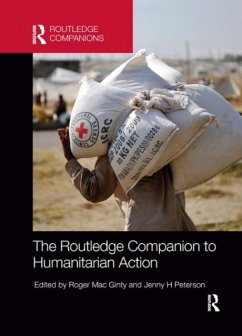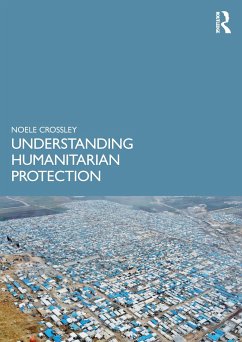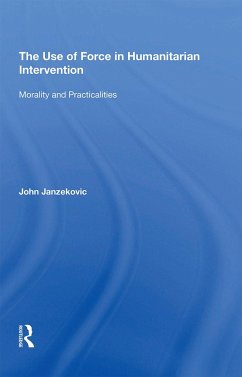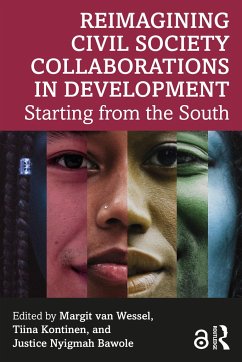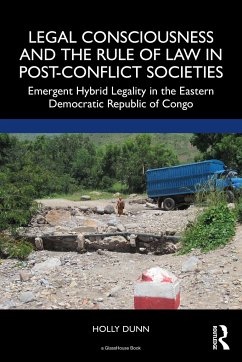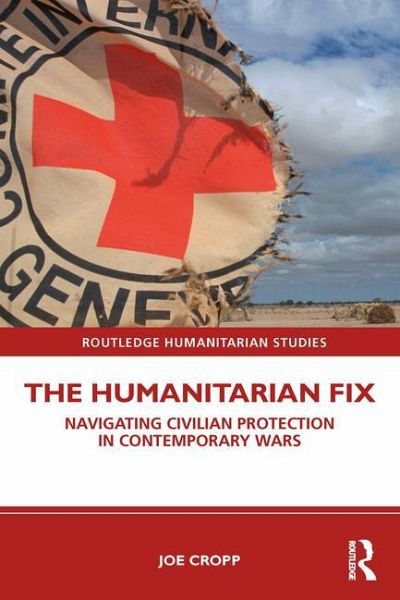
The Humanitarian Fix
Navigating Civilian Protection in Contemporary Wars
Versandkostenfrei!
Versandfertig in 6-10 Tagen
43,99 €
inkl. MwSt.
Weitere Ausgaben:

PAYBACK Punkte
22 °P sammeln!
This book investigates how humanitarians balance the laws and principles of civilian protection with the realities of contemporary warzones, where non-state armed actors assert cultural, political and religious traditions that are often at odds with official frameworks.This book argues that humanitarian protection on the ground is driven not by official frameworks in the traditional sense, but by the relationships between the complex mix of actors involved in contemporary wars. The frameworks, in turn, act as a unifying narrative that preserves these relationships. As humanitarian practitioner...
This book investigates how humanitarians balance the laws and principles of civilian protection with the realities of contemporary warzones, where non-state armed actors assert cultural, political and religious traditions that are often at odds with official frameworks.
This book argues that humanitarian protection on the ground is driven not by official frameworks in the traditional sense, but by the relationships between the complex mix of actors involved in contemporary wars. The frameworks, in turn, act as a unifying narrative that preserves these relationships. As humanitarian practitioners navigate this complex space, they act as unofficial brokers, translating the official frameworks to align with the often-divergent agendas of non-state armed actors. In doing so, they provide an unofficial humanitarian fix for the challenges inherent in applying the official frameworks in contemporary wars.
Drawing on rich ethnographic observations from the author's timein northern Iraq, and complemented by interviews with a range of fieldworkers and humanitarian policy makers and lawyers, this book will be a compelling read for researchers and students within humanitarian and development studies, and to practitioners and policy makers who are grappling with the contradictions this book explores.
This book argues that humanitarian protection on the ground is driven not by official frameworks in the traditional sense, but by the relationships between the complex mix of actors involved in contemporary wars. The frameworks, in turn, act as a unifying narrative that preserves these relationships. As humanitarian practitioners navigate this complex space, they act as unofficial brokers, translating the official frameworks to align with the often-divergent agendas of non-state armed actors. In doing so, they provide an unofficial humanitarian fix for the challenges inherent in applying the official frameworks in contemporary wars.
Drawing on rich ethnographic observations from the author's timein northern Iraq, and complemented by interviews with a range of fieldworkers and humanitarian policy makers and lawyers, this book will be a compelling read for researchers and students within humanitarian and development studies, and to practitioners and policy makers who are grappling with the contradictions this book explores.





